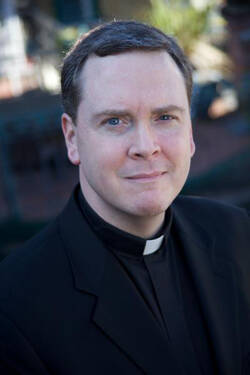You might expect a 92-year-old man who has lived through the worst of the 20th century to have a certain gloomy angst about the future of humanity. Not so with Ladislas Orsy, S.J., a world-renowned professor of law at Georgetown University and a frequent contributor to these pages. A couple of years back, I had the good fortune to attend a series of lectures Father Orsy gave at Oxford University on the thought of Francisco de Vitoria, O.P., and the origins of international law. Father Orsy, mind you, is no naïve idealist either. He has spent much of the last 20 years contemplating the 16th-century clash between European powers and the indigenous civilizations of the Americas.
The conquistadors, according to Orsy, did not think of themselves as brutish or ungentlemanly. The conquest of the Amerindians, in their minds, had rock-solid philosophical, legal and theological justifications. The gist of their excuse, of course, was that the Indians were neither rational nor responsible and were therefore not really people; they were no-ones. Since “no one” owned the land, the Spanish imperialists felt justified in claiming it for their king. Francisco de Vitoria, the 16th-century Dominican, thought that all the conquistadors’ justifications were just so much pap. “Vitoria,” said Orsy, “affirmed that the Indians were no less rational and free human beings than the Spaniards, and they were therefore protected by the jus gentium, the law of nations.” Vitoria “then elaborated on the norms and demands of such an international order, advocating universal freedom of religion.”
In addition to looking at what Vitoria taught, however, Father Orsy says we must also look at how he reached his conclusions, because his method reveals something equally important. Vitoria began his work, according to Orsy, not with ethereal philosophical concepts, but with empirical observation. To borrow a phrase from Christology, Vitoria’s analysis proceeded “from below.” He looked first to the individual human person and then to the political community; then, through rational reflection on both, he drew conclusions and formed concepts. What is important about this method, according to Orsy, is that Vitoria’s analysis, even at its most conceptual, was never divorced from human experience, particularly the experience of those most closely affected by his ideas.
That is similar to the methodology that John Langan, S.J., employs in this issue. Father Langan would be the first to point out that he is no Vitoria, and no one is comparing 21st-century gay people with 16th-century Amerindians. Still, there is an echo of Vitoria’s method in the way Father Langan describes how the church needs to consider the experiential as well as rationalistic dimensions of its stance toward homosexuality. We need to place the person, in other words, at the heart of the question. In a certain sense, that is precisely what the pope has also been asking us to do.
In Orsy’s judgment, too many modern philosophers and legal scholars tend to philosophize “from above” and in their pre-occupation with the internal coherence of their ideas or the narrow grammatical exegesis of law, they lose sight of the very reason law exists in the first place: to safeguard the rights and dignity of the human person, not as he or she exists in some imagined platonic form but in the real world.
Here is where Orsy’s mildly astonishing optimism shines through: In the face of staggering injustice and violence, Orsy, like Vitoria, still has some faith in the power of human reason, married to empathy, to formulate moral and just positive laws. In the main, I tend to share this optimism. But it does invite an unsettling question: If we can do it, why so often do we not?








